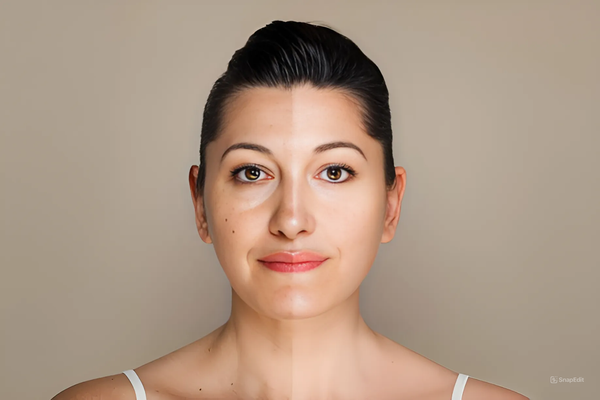Circadian Rhythms and Longevity: Syncing Your Body Clock for a Longer Life
Explore the connection between circadian rhythms and longevity, discussing how aligning sleep, metabolism, and daily routines with natural body clocks can promote healthy aging.

The pursuit of longevity, or living a longer, healthier life, has intrigued scientists, philosophers, and society at large for centuries. Advances in medical research and public health measures have already extended the human lifespan significantly. However, a growing body of research points to an often-overlooked factor that could further enhance not just the length but the quality of life: our circadian rhythms. These internal body clocks, responsible for regulating sleep, metabolism, and a range of physiological processes, might hold the key to unlocking longer, healthier lives.
Understanding Circadian Rhythms: The Body’s Biological Clock
At its core, a circadian rhythm is an intrinsic 24-hour cycle that governs physiological processes in nearly every organism, from plants and animals to humans. This internal clock is largely influenced by environmental cues, such as light and darkness, but it also regulates various bodily functions including sleep-wake cycles, hormone production, metabolism, and body temperature.
The primary pacemaker of this rhythm in humans is located in the brain’s hypothalamus, in a cluster of neurons known as the suprachiasmatic nucleus (SCN). This small structure synchronizes with external cues to regulate our sleep-wake patterns, ensuring that many biological processes occur at optimal times. For instance, melatonin, a hormone that induces sleep, is released in response to darkness, while cortisol, which helps us wake up and stay alert, peaks in the early morning.
However, circadian rhythms do much more than just regulate our sleep. They orchestrate metabolic processes, influence immune responses, and even modulate gene expression. As a result, when our circadian rhythms are misaligned—due to factors like shift work, jet lag, or modern lifestyle habits such as late-night screen time—the consequences can ripple across various aspects of health.
The Link Between Circadian Rhythms and Aging
Aging is an inevitable biological process, but how we age can vary greatly depending on factors like genetics, lifestyle, and environment. Emerging research suggests that the optimization of circadian rhythms can influence not only how long we live but also how well we age.
One key area where circadian rhythms intersect with aging is the regulation of metabolism. As we age, metabolic processes slow down, leading to a range of age-related diseases such as diabetes, obesity, and cardiovascular conditions. Studies have shown that circadian disruption can exacerbate these conditions. For example, irregular sleep patterns or chronic sleep deprivation have been linked to insulin resistance, a precursor to type 2 diabetes. Conversely, maintaining a robust circadian rhythm can help preserve metabolic health, reducing the risk of these age-related diseases.
Moreover, circadian rhythms play a role in inflammation, which is another major factor in aging. Chronic inflammation, often referred to as “inflammaging,” is implicated in many age-related diseases, including Alzheimer’s, arthritis, and cardiovascular disease. Circadian-controlled genes regulate immune responses, and misalignment of the body clock can lead to persistent low-grade inflammation, contributing to faster aging. Synchronizing our circadian rhythms could, therefore, serve as a natural anti-inflammatory strategy, helping to slow down the aging process.
Chronobiology and Longevity Research: Key Findings
The field of chronobiology, which studies circadian rhythms and their effects on biological processes, has provided compelling evidence linking circadian optimization to longevity.
Caloric Restriction and Time-Restricted Eating:
One of the most promising areas of longevity research involves caloric restriction, which has been shown to extend lifespan in numerous animal studies. Interestingly, the timing of caloric intake, governed by circadian rhythms, also plays a critical role in longevity. Time-restricted eating (TRE), where food is consumed within a specific window of the day (often 8-10 hours), aligns eating patterns with circadian rhythms. Studies in mice have demonstrated that TRE not only prevents obesity and metabolic diseases but can also extend lifespan, even without reducing total calorie intake. In humans, time-restricted eating has been linked to improved insulin sensitivity, reduced blood pressure, and better metabolic health—all of which can contribute to healthy aging.
Sleep Quality and Lifespan:
It’s well-established that sleep is essential for overall health, but new research suggests that sleep quality is directly linked to longevity. People who experience poor sleep—whether due to insomnia, sleep apnea, or circadian disruption—are at higher risk for chronic diseases and have shorter lifespans. Disrupted circadian rhythms, which often result in fragmented or insufficient sleep, can accelerate cognitive decline and increase the risk of neurodegenerative diseases like Alzheimer’s.
On the other hand, maintaining regular sleep-wake cycles and getting adequate, high-quality sleep supports brain health, enhances memory, and promotes cellular repair processes that are essential for longevity. For older adults, synchronized circadian rhythms can help mitigate age-related cognitive decline and improve overall quality of life.
Cellular Repair and Circadian Regulation:
Another fascinating aspect of circadian biology is its impact on cellular repair and DNA maintenance. As we age, the ability of our cells to repair damage diminishes, contributing to the aging process. However, research shows that certain cellular repair processes are regulated by circadian rhythms. For example, autophagy, the body’s way of cleaning out damaged cells, is more active at certain times of the day. Aligning our daily routines with these natural rhythms—such as timing meals, exercise, and sleep—can optimize cellular repair mechanisms and potentially slow the biological clock.
Practical Ways to Optimize Circadian Rhythms for Longevity
Given the growing evidence that circadian rhythms influence longevity, optimizing our internal clocks becomes a crucial component of a healthy lifestyle. Here are practical ways to align your circadian rhythms for better health and potentially a longer life:
- Prioritize Consistent Sleep Patterns:
Maintaining a regular sleep-wake cycle is one of the most effective ways to optimize circadian rhythms. Going to bed and waking up at the same time every day, even on weekends, helps synchronize your internal clock with natural environmental cues. Aim for 7-9 hours of quality sleep per night, and create a relaxing bedtime routine to facilitate better sleep. - Embrace Natural Light Exposure:
Exposure to natural light, particularly in the morning, is crucial for regulating circadian rhythms. Light suppresses melatonin production, signaling to your brain that it’s time to wake up and be alert. Spending time outdoors, especially in the early part of the day, helps reinforce your body’s natural sleep-wake cycle and enhances alertness during the day. On the flip side, minimizing exposure to artificial light, particularly blue light from screens, in the evening can improve sleep quality. - Incorporate Time-Restricted Eating:
Aligning your meals with your circadian rhythm by practicing time-restricted eating can optimize metabolic health. Try to eat within a consistent 8-10 hour window during the day and avoid late-night snacking, as eating late can disrupt circadian-regulated processes like digestion and insulin sensitivity. This approach can also improve sleep quality and reduce the risk of metabolic disorders that are linked to aging. - Exercise at the Right Time:
Exercise is a potent regulator of circadian rhythms. Engaging in physical activity during the day, particularly in the morning or early afternoon, can help reset your internal clock and promote better sleep at night. However, exercising too late in the evening may interfere with sleep, so it’s best to avoid intense workouts close to bedtime. - Manage Stress and Optimize Mental Health:
Chronic stress and mental health issues can disrupt circadian rhythms by interfering with sleep and hormone regulation. Practicing stress-reducing techniques such as meditation, yoga, or mindfulness can help maintain a healthy circadian rhythm and support overall well-being.
Conclusion: The Future of Longevity Through Circadian Optimization
As we delve deeper into the science of aging, the role of circadian rhythms in promoting longevity is becoming increasingly clear. Optimizing these rhythms, through consistent sleep patterns, mindful eating, and exposure to natural light, could have profound effects on how we age. While no single intervention can guarantee a longer life, syncing our body clocks with the natural rhythms of the environment may offer one of the most accessible and impactful strategies for healthy aging.
In a world where the pace of life often works against our natural rhythms, paying attention to circadian health could be a vital piece of the longevity puzzle—helping us not just live longer but live better.
Sources
- Ma MA, Morrison EH. Neuroanatomy, Nucleus Suprachiasmatic. [Updated 2023 Jul 24]. In: StatPearls [Internet]. Treasure Island (FL): StatPearls Publishing; 2024 Jan-. Available from: https://www.ncbi.nlm.nih.gov/books/NBK546664/
- Sato, S., Solanas, G., Sassone-Corsi, P., & Benitah, S. A. (2021). Tuning up an aged clock: Circadian clock regulation in metabolism and aging. Translational Medicine of Aging, 6, 1-13. https://doi.org/10.1016/j.tma.2021.11.003
- Boege HL, Bhatti MZ, St-Onge MP. Circadian rhythms and meal timing: impact on energy balance and body weight. Curr Opin Biotechnol. 2021 Aug;70:1-6. doi: 10.1016/j.copbio.2020.08.009. Epub 2020 Sep 29. PMID: 32998085; PMCID: PMC7997809.
- Mazzotti DR, Guindalini C, Moraes WA, Andersen ML, Cendoroglo MS, Ramos LR, Tufik S. Human longevity is associated with regular sleep patterns, maintenance of slow wave sleep, and favorable lipid profile. Front Aging Neurosci. 2014 Jun 24;6:134. doi: 10.3389/fnagi.2014.00134. PMID: 25009494; PMCID: PMC4067693.
- Bubu OM, Brannick M, Mortimer J, Umasabor-Bubu O, Sebastião YV, Wen Y, Schwartz S, Borenstein AR, Wu Y, Morgan D, Anderson WM. Sleep, Cognitive impairment, and Alzheimer's disease: A Systematic Review and Meta-Analysis. Sleep. 2017 Jan 1;40(1). doi: 10.1093/sleep/zsw032. PMID: 28364458.
- Sadeghmousavi, S., Eskian, M., Rahmani, F. et al. The effect of insomnia on development of Alzheimer’s disease. J Neuroinflammation 17, 289 (2020). https://doi.org/10.1186/s12974-020-01960-9
- Association Between Sleep Duration and Cognitive Decline | https://jamanetwork.com/journals/jamanetworkopen/fullarticle/2770743
- Wennberg AMV, Wu MN, Rosenberg PB, Spira AP. Sleep Disturbance, Cognitive Decline, and Dementia: A Review. Semin Neurol. 2017 Aug;37(4):395-406. doi: 10.1055/s-0037-1604351. Epub 2017 Aug 24. PMID: 28837986; PMCID: PMC5910033.
- Facer-Childs ER, Middleton B, Skene DJ, Bagshaw AP. Resetting the late timing of 'night owls' has a positive impact on mental health and performance. Sleep Med. 2019 Aug;60:236-247. doi: 10.1016/j.sleep.2019.05.001. Epub 2019 May 10. PMID: 31202686.
- Blume C, Garbazza C, Spitschan M. Effects of light on human circadian rhythms, sleep and mood. Somnologie (Berl). 2019 Sep;23(3):147-156. doi: 10.1007/s11818-019-00215-x. Epub 2019 Aug 20. PMID: 31534436; PMCID: PMC6751071.
- Hower IM, Harper SA, Buford TW. Circadian Rhythms, Exercise, and Cardiovascular Health. J Circadian Rhythms. 2018 Jul 12;16:7. doi: 10.5334/jcr.164. PMID: 30210567; PMCID: PMC6083774.
- Oster, H. (2020). The interplay between stress, circadian clocks, and energy metabolism. Journal of Endocrinology, 247(1), R13-R25. Retrieved Oct 28, 2024, from https://doi.org/10.1530/JOE-20-0124









